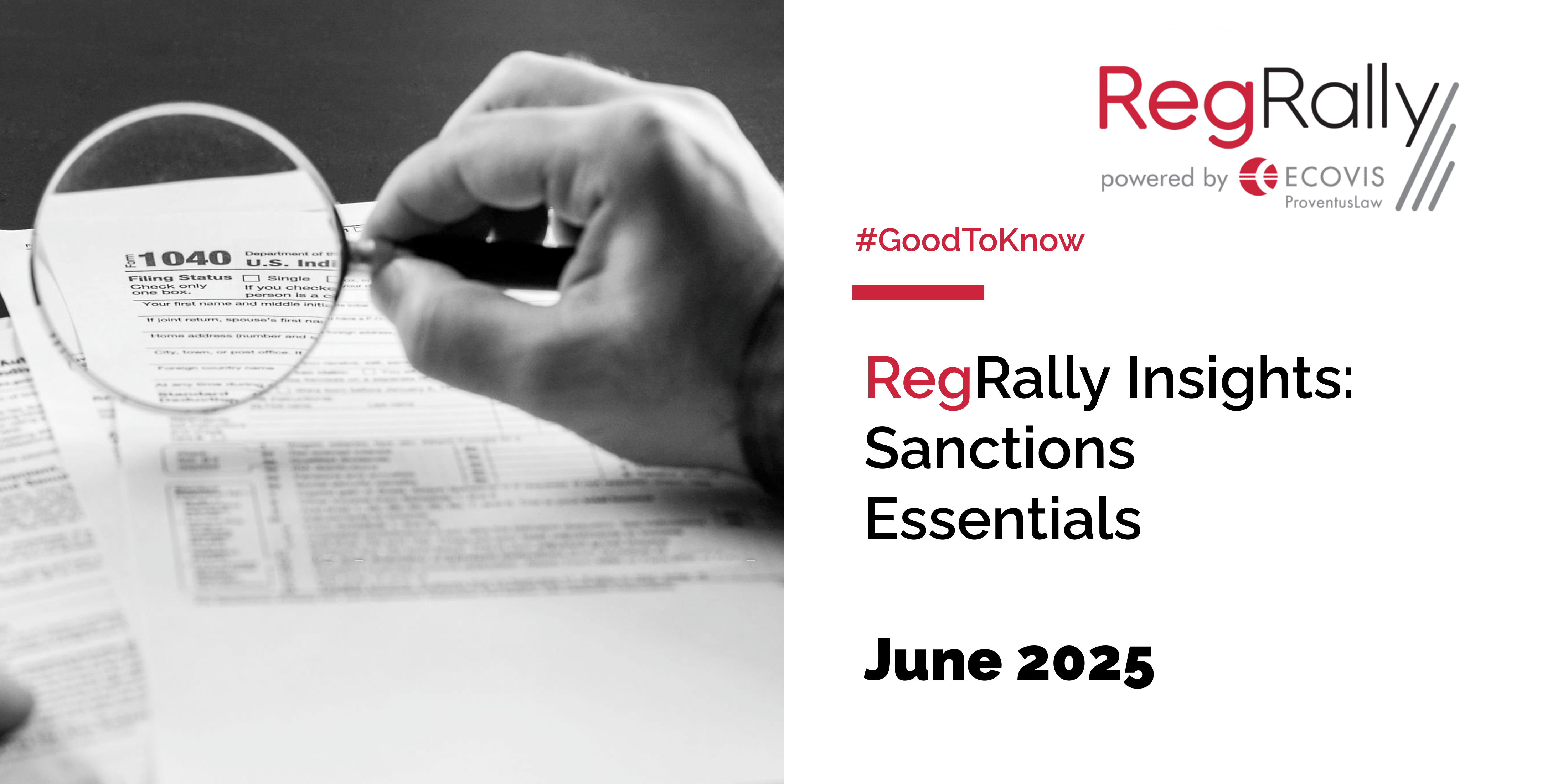ECOVIS welcomes its monthly newsletter on sanctions, which is dedicated to everyone who wants to understand the latest trends and developments, get tips from our experts, and deepen their knowledge.
EU Adopts 17th Sanctions Package Against Russia; Lifts Economic Sanctions on Syria
On 20 May 2025, the Council of the EU adopted its 17th sanctions package against Russia, intensifying efforts to curb its military aggression in Ukraine. The measures target Russia’s “shadow fleet” of oil tankers, major oil producers, and access to key military technologies, while also addressing hybrid threats and human rights abuses.
On the same day, the EU lifted economic sanctions on Syria following the Assad regime’s collapse. This shift aims to support democratic transition and reconstruction, while targeted sanctions remain in place against individuals tied to past regime abuses.
EU Expands Sanctions Over Russia’s Hybrid Threats and Human Rights Abuses
On 20 May 2025, the Council of the European Union adopted new restrictive measures targeting Russia’s destabilising activities abroad and serious human rights violations within its borders.
Key actions include:
- Sanctions on 21 individuals and 6 entities involved in Russia’s hybrid operations.
- Expansion of asset freezes to include vessels, aircraft, real estate, and digital infrastructure.
- Inclusion of transactions involving credit institutions and crypto-asset service providers (CASPs) linked to destabilising activity.
- Additional sanctions on 28 Russian officials, including judges, prosecutors, and investigators responsible for politically motivated prosecutions, notably against Alexei Navalny.
EU extends Sanctions Framework Against Cyber-attacks
On 12 May 2025, the Council of the European Union decided to prolong the restrictive measures against cyber-attacks threatening the EU and its member states for a further year, until 18 May 2026. Additionally, the legal framework for these measures has been extended for three years, until 18 May 2028. This framework enables the EU to impose targeted restrictive measures on individuals or entities involved in cyber-attacks that cause significant impact and constitute an external threat to the EU or its member states. It also allows for the imposition of sanctions in response to cyber-attacks against third states or international organisations, where such measures are deemed necessary to achieve the objectives of the Common Foreign and Security Policy.
Russian Citizen Prosecuted in Lithuania for Breaching EU Aviation Sanctions
On 12 May 2025, the Klaipėda Regional Prosecutor’s Office referred to court a case against a 53-year-old Russian national accused of intentionally violating EU sanctions on the Russian aviation sector. The charges, under Article 123-1(1) of the Lithuanian Criminal Code, relate to two 2023 incidents involving the attempted transfer of sanctioned aircraft through Lithuania to Russia. The investigation, led by FNTT, found that the accused used companies registered in Turkey and Kazakhstan to purchase and operate the aircraft in violation of EU measures, causing significant harm to Lithuanian national interests.
OFAC Issues General License 124 and Targets Terrorist Financing Networks
On 15 May 2025, the U.S. Department of the Treasury’s OFAC took several key actions:
- General License 124 Issued: OFAC authorized indefinite continuation of certain petroleum services tied to the Caspian Pipeline Consortium and Tengizchevroil, ensuring operational stability while maintaining sanctions pressure on Russia.
- FAQ 1216 Updated: Clarifies that the license does not permit support for broader Russian petroleum development.
- New SDN Designations: Individuals in Lebanon and Iran were added to the SDN List for financing Hizballah, reinforcing U.S. efforts to combat terrorist funding.


 Newsletter Subscription
Newsletter Subscription